
PROGRAMMING AND COMPUTER SOFTWARE
Scope & Guideline
Pioneering Research in Programming and Software Solutions
Introduction
Aims and Scopes
- Software Development and Engineering:
The journal emphasizes research in software development methodologies, tools, and practices, including agile development, software testing, and requirements engineering. - Algorithms and Computational Methods:
A significant focus is placed on the design, analysis, and implementation of algorithms, particularly in the context of optimization, numerical methods, and computational complexity. - Artificial Intelligence and Machine Learning:
Research in AI and ML is prominent, covering topics like neural networks, deep learning, and machine learning applications in various domains including image processing and data analysis. - Computer Algebra Systems:
The journal publishes work related to computer algebra, symbolic computation, and their applications in solving complex mathematical problems. - Data Science and Analytics:
There is a growing emphasis on data science, including methods for data mining, machine learning applications, and statistical analysis techniques. - Cybersecurity and Cryptography:
Research on software security, vulnerabilities, and cryptographic methods is a core area, reflecting the increasing importance of secure software systems.
Trending and Emerging
- Machine Learning and Deep Learning Applications:
There is a substantial increase in research related to machine learning and deep learning, particularly their applications in image processing, natural language processing, and predictive analytics. - Cybersecurity Innovations:
With the growing concern over data breaches and cyber threats, innovative research in cybersecurity practices, including secure coding and cryptographic techniques, has gained traction. - Cloud Computing and Distributed Systems:
Research focusing on cloud computing architectures, distributed ledger technologies, and edge computing solutions is on the rise, driven by the demand for scalable and efficient systems. - Human-Computer Interaction and Usability:
Emerging studies on user experience, usability testing, and human-computer interaction design are becoming increasingly significant, as software applications prioritize user-centered design. - Quantum Computing and Advanced Algorithms:
There is a growing interest in quantum computing, with research exploring its implications for algorithms and software development, reflecting a frontier in computational capabilities.
Declining or Waning
- Traditional Software Engineering Models:
There has been a noticeable decrease in the number of publications focusing on traditional software engineering models, as newer methodologies such as agile and DevOps gain prominence. - Static Analysis Techniques:
Although static analysis remains important, the volume of research dedicated to basic static analysis methods has diminished, possibly due to advancements in dynamic analysis and machine learning techniques. - Classic Database Management Systems:
Research on classical database systems and their optimization techniques is less frequent, overshadowed by the rise of NoSQL databases and big data frameworks. - Basic Computer Graphics Techniques:
Publications on fundamental computer graphics techniques have declined, as the field has moved towards more complex and advanced rendering techniques. - Legacy Programming Languages:
There is a waning interest in research focused on legacy programming languages, as newer languages and paradigms become more relevant in current software development practices.
Similar Journals
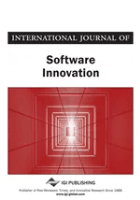
International Journal of Software Innovation
Innovating the Future of Computer Science, One Article at a Time.The International Journal of Software Innovation, published by IGI Global, serves as a crucial platform for disseminating cutting-edge research in the field of software engineering and innovation. With its ISSN 2166-7160 and E-ISSN 2166-7179, this journal has a broad scope that encompasses multiple areas of computer science, including Artificial Intelligence, Computer Graphics and Computer-Aided Design, Computer Networks and Communications, Software, and Computer Science Applications. Since its inception in 2017 and continuing until 2024, the journal has established itself in Q4 quartiles across various categories, reflecting both emerging trends and foundational principles in software innovation. Although it does not currently follow an Open Access model, its findings are vital for researchers, professionals, and students aiming to understand and contribute to the evolving landscape of software technologies. Located in the United States at 701 E Chocolate Ave, Ste 200, Hershey, PA 17033-1240, this journal not only offers research insight but also encourages collaboration and knowledge sharing among scholars worldwide.
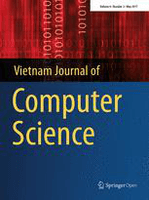
Vietnam Journal of Computer Science
Fostering collaboration for groundbreaking discoveries in AI and beyond.Vietnam Journal of Computer Science, published by World Scientific Publishing Co Pte Ltd, serves as a prominent platform for researchers and professionals in the rapidly evolving field of computer science. Launched as an Open Access journal in 2013, it aims to disseminate high-quality research across various subfields, including Artificial Intelligence, Computational Theory and Mathematics, Computer Vision, and Information Systems. With its ISSN 2196-8888 and E-ISSN 2196-8896, the journal provides valuable insights and contributes to the growing body of knowledge in computer science, particularly in Southeast Asia. Despite its relatively recent establishment, the journal has achieved significant rankings, including Q3 status in multiple categories and notable visibility in Scopus metrics, evidencing its commitment to fostering innovative research. This journal is essential for those looking to stay at the forefront of computational advancements and applications, particularly in Vietnam and beyond, facilitating an engaging dialogue among scholars and industry professionals.
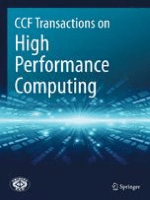
CCF Transactions on High Performance Computing
Bridging Theory and Practice in Computational ExcellenceCCF Transactions on High Performance Computing, published by SPRINGERNATURE, is an esteemed academic journal dedicated to advancing research in the field of high-performance computing. With an ISSN of 2524-4922 and E-ISSN of 2524-4930, this journal provides a platform for disseminating innovative findings, methodologies, and technologies that shape computational practices within various domains. Operating from Germany, it serves a global audience, reinforcing its impact through an impressive categorization in the Q3 quartile across multiple fields, including Computer Science Applications and Information Systems. The journal, which covers research from 2019 to 2024, plays a crucial role in bridging gaps between theory and practical implementation in hardware architecture and software systems. Although it is not an open-access journal, its contributions are invaluable for researchers, professionals, and students invested in the continuous evolution of high-performance computing. With Scopus rankings that highlight its relevance and influence in the academic community, CCF Transactions on High Performance Computing remains a key resource for the latest developments in this dynamic and rapidly evolving discipline.

Frontiers of Computer Science
Exploring the Nexus of Theory and Application in Computer ScienceFrontiers of Computer Science is a leading peer-reviewed journal dedicated to advancing the field of computer science through the publication of high-quality research articles, reviews, and theoretical discussions. Published by HIGHER EDUCATION PRESS, this journal has gained significant recognition, currently boasting a prestigious impact factor and ranking in the Q1 quartile for both Computer Science (miscellaneous) and Theoretical Computer Science categories in 2023. With a focus on the intersection of computational theory and practical applications, it serves as a vital platform for researchers, professionals, and students alike who are eager to contribute to and stay updated with groundbreaking developments. The journal’s scope encompasses a wide range of topics, reflecting the diverse nature of computer science today. Operating from Beijing, China, it emphasizes Open Access, ensuring that vital research is readily available to the global academic community. With its convergence period spanning from 2013 to 2024, Frontiers of Computer Science remains committed to fostering innovation and scholarly dialogue that drives the future of technology.

JOURNAL OF EXPERIMENTAL & THEORETICAL ARTIFICIAL INTELLIGENCE
Unveiling Insights into AI's Evolving LandscapeThe Journal of Experimental & Theoretical Artificial Intelligence, published by Taylor & Francis Ltd, serves as a premier platform for researchers and professionals interested in advancing the fields of artificial intelligence, software engineering, and theoretical computer science. Established in 1989, this peer-reviewed journal features original research and comprehensive reviews that explore innovative methodologies and emerging trends within these dynamic domains. With an impact factor that reflects its relevance, the journal currently ranks in Q3 across its categories, affirming its contributions to the scholarly community. The journal's commitment to quality and rigor invites submissions that bridge experimental and theoretical frameworks, thus fostering a deeper understanding of AI's applications and implications. Researchers and students can access insightful articles that drive critical discussions and inspire future work, making this journal an essential resource for anyone looking to delve into the complexities of artificial intelligence and its surrounding disciplines.

Software Impacts
Advancing Software Science for a Brighter FutureSoftware Impacts is an esteemed academic journal published by ELSEVIER, dedicated to advancing the field of software science and informing best practices in development and application. With an ISSN of 2665-9638, this journal facilitates the dissemination of impactful research from 2019 to 2024, making it a valuable resource for both established researchers and promising students alike. Although it currently holds a Q3 ranking in the category of Software and ranks at #270/407 in Scopus, it continues to contribute significantly to the discourse surrounding software-related innovations and methodologies. The journal’s open access policy enhances accessibility and encourages a broader readership, fostering an environment where critical discussions flourish. By addressing the ongoing challenges and advancements in software technology, Software Impacts plays a crucial role in shaping the future of software development and its applications globally.
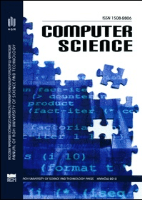
Computer Science-AGH
Catalyzing Academic Growth in Computer ScienceComputer Science-AGH, published by the AGH University of Science & Technology Press in Poland, is an esteemed open access journal that has been disseminating high-quality research since 2004. With ISSN 1508-2806 and E-ISSN 2300-7036, this journal focuses on a diverse range of areas within the computer science discipline, including but not limited to Artificial Intelligence, Computational Theory, Computer Graphics, and Networks. While it currently holds a Q4 ranking across several categories as of 2023, it actively promotes research that contributes to the academic community's understanding and evolution in the field. The journal's commitment to open access ensures that vital research is accessible to a wider audience, fostering collaboration and innovation. With its comprehensive focus and strategic publication goals, Computer Science-AGH plays a crucial role in advancing the frontiers of computer science research and education, making it an invaluable resource for researchers, professionals, and students alike.

CONSTRAINTS
Unlocking Innovations in Artificial Intelligence and SoftwareCONSTRAINTS, an esteemed journal published by Springer, specializes in the interrelated domains of Artificial Intelligence, Computational Theory and Mathematics, Discrete Mathematics and Combinatorics, and Software. With an ISSN of 1383-7133 and E-ISSN of 1572-9354, this journal provides a critical platform for disseminating cutting-edge research and methodologies aimed at addressing complex challenges in these rapidly evolving fields. Located in the Netherlands, the journal's rigorous selection process is reflected in its impressive categorizations, achieving Q2 and Q3 rankings in various Scopus categories for 2023. This positions it among the top quartiles in its respective fields, making it a vital resource for scholars and practitioners seeking to stay at the forefront of innovation. Researchers and students alike will benefit from the insightful contributions within its pages, making CONSTRAINTS a pivotal journal for those dedicated to advancing knowledge and application in computational and artificial intelligence spheres.

JOURNAL OF INFORMATION SCIENCE AND ENGINEERING
Pioneering Research for Tomorrow's Technologies.JOURNAL OF INFORMATION SCIENCE AND ENGINEERING, published by the Institute of Information Science in Taiwan, is a pivotal platform for the dissemination of innovative research in the multidisciplinary fields of information science and engineering. Established in 1993, the journal primarily focuses on areas such as library and information sciences, human-computer interaction, hardware and architecture, as well as computational theory and software development. Despite holding a current Q4 ranking in several categories, the journal demonstrates significant potential for growth, particularly in computation and software systems, as evidenced by its Scopus rankings and percentiles. Researchers, professionals, and students will find this journal to be an invaluable resource to stay abreast of evolving theories and technologies in information science. The journal is accessible through traditional subscription models, fostering a broad academic outreach. It serves to enhance knowledge-sharing and collaboration within this dynamic and ever-evolving field.
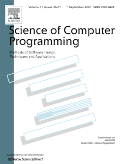
SCIENCE OF COMPUTER PROGRAMMING
Innovating the Future of Computational TheoryScience of Computer Programming, published by Elsevier, is a leading journal dedicated to advancing knowledge in the fields of computer programming, computational theory, and software development. With a focus on interdisciplinary research that spans computational methodologies, information systems, and simulation modeling, this journal plays a vital role in disseminating innovative findings and fostering collaboration among experts in these dynamic areas. With a respectable impact factor and ranked in various Scopus Categories such as computational theory (Q3) and information systems (Q2), it provides a platform for high-quality scholarly articles that push the boundaries of programming science. Although currently not open access, the journal offers invaluable insights for researchers, professionals, and students alike, ensuring they are equipped with the latest advancements and methodologies to thrive in an ever-evolving technological landscape. The journal covers research from its convergence starting in 1981 and continues to welcome groundbreaking contributions as it looks forward to an exciting future through 2025 and beyond.